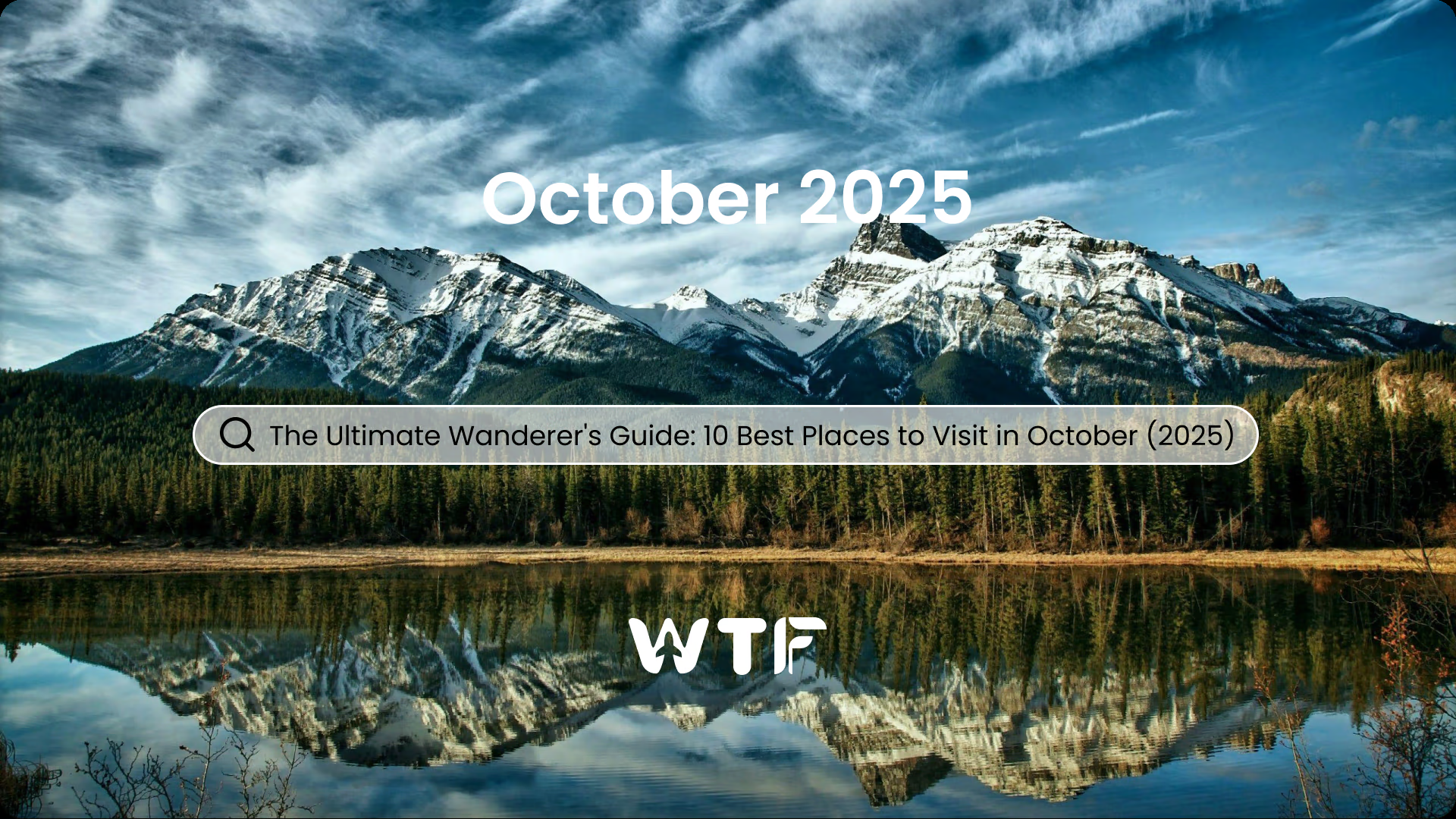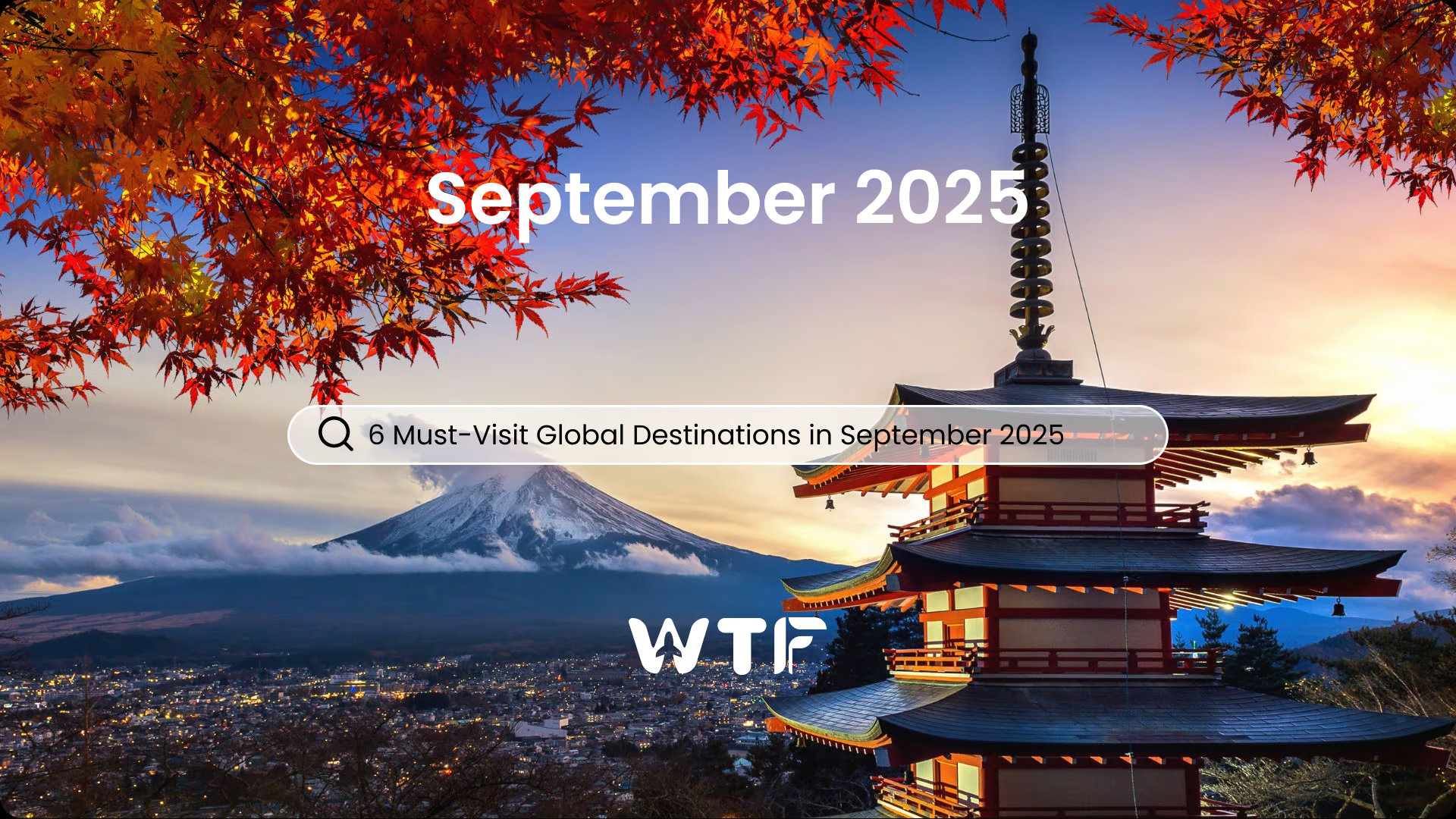Nestled on the Adriatic and Ionian Seas, Albania remains a hidden treasure waiting to be explored. Steeped in history, adorned with stunning landscapes, and infused with warm hospitality, this Balkan gem beckons intrepid travelers seeking an authentic experience. Join us on a virtual journey through the diverse wonders that make Albania a must-visit destination.
Culture & Influence
1. Ancient Civilization: Traces of Antiquity
Albania stands as a testament to the ancient civilizations that once graced its landscapes. Explore the UNESCO World Heritage site of Butrint, an archaeological marvel showcasing remnants from Greek, Roman, Byzantine, and Venetian periods. The amphitheater, city walls, and baptistery whisper tales of Butrint’s role as a bustling city in antiquity. Dive into the mystique of Apollonia, where ancient ruins unveil the former grandeur of this Greek city, adorned with temples, theaters, and avenues.
2. Religious Significance: Harmony in Diversity
Albania boasts a unique religious landscape marked by religious coexistence and tolerance. Visit the city of Shkodra, where the iconic Rozafa Castle stands witness to the diverse religious heritage of the region. Explore the Et’hem Bey Mosque in Tirana, a symbol of religious harmony, as its construction continued even during the atheist rule. Journey to the mountain village of Krujë, home to the historic Krujë Castle and the religious harmony museum, Bektashi Tekke.
3. History and Heritage: Chronicles of a Nation
Delve into Albania’s rich history, shaped by empires, revolutions, and resilience. Visit the medieval town of Gjirokastër, with its well-preserved Ottoman architecture and the imposing Gjirokastër Castle. Discover the ancient amphitheater and archaeological treasures in Durrës, a city with a history dating back to the 7th century BC. The city of Berat, recognized by UNESCO, invites exploration with its medieval charm and vibrant history, encapsulated in the Mangalem and Gorica quarters.
4. Modern Significance: A Nation’s Renaissance
Albania, once isolated by communist rule, has emerged as a nation with a vibrant present and a promising future. Tirana, the capital, showcases a blend of modernity and history. Skanderbeg Square, named after the national hero, stands as a testament to Albania’s resilience. The Pyramid of Tirana, a former museum turned into a symbol of artistic expression, reflects the country’s transformation. Explore the rejuvenated Blloku district, once restricted to party officials and now a lively hub of cafes, boutiques, and nightlife.
Exploring the Top 5 Must-Visit Tourist Destinations in Albania
1. Gjirokastër: The Stone City of a Thousand Steps
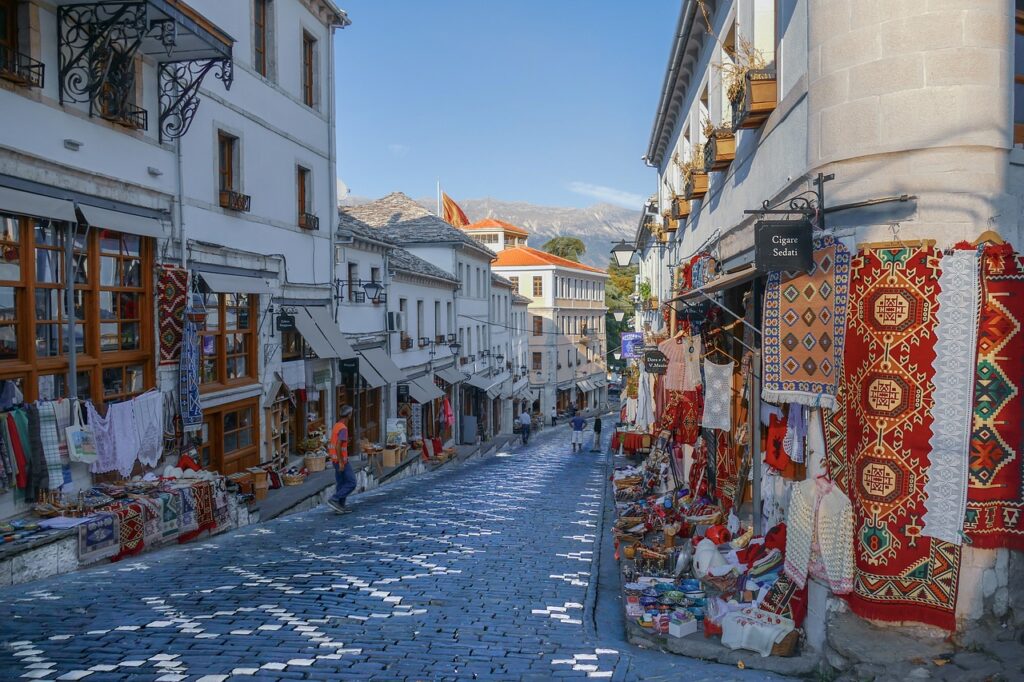
Place Speciality: Gjirokastër, a UNESCO World Heritage site, enchants visitors with its well-preserved Ottoman architecture and cobblestone streets. The imposing Gjirokastër Castle offers panoramic views of the city and houses the fascinating Museum of Armaments.
Entrance Fee: Gjirokastër Castle: Approx. 200 ALL (Albanian Lek)
How to Get There: From Tirana, take a scenic drive south on the SH4 highway for approximately 4 hours (approx. 240 km).
2. Butrint: A Journey Through Time
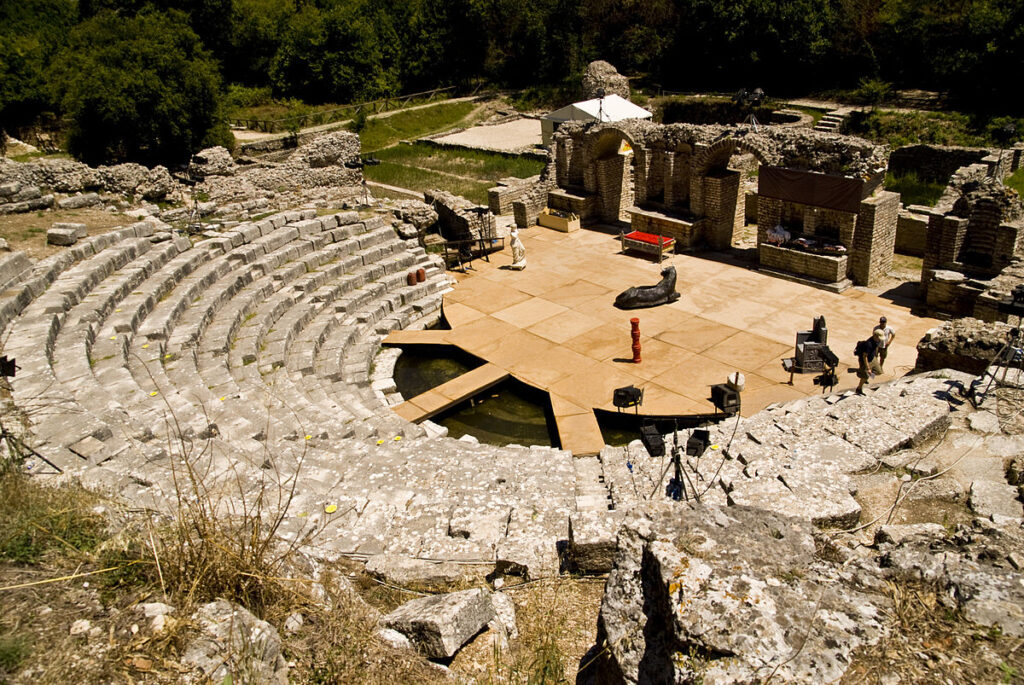
Place Speciality: Butrint, another UNESCO gem, is an archaeological marvel showcasing ruins from various civilizations, including Greek, Roman, Byzantine, and Venetian periods. Explore the ancient amphitheater, the baptistery, and the well-preserved city walls.
Entrance Fee: Butrint National Park: Approx. 700 ALL
How to Get There: From Gjirokastër, drive south for around 1 hour (approx. 40 km) to reach Butrint.
3. Berat: The City of a Thousand Windows
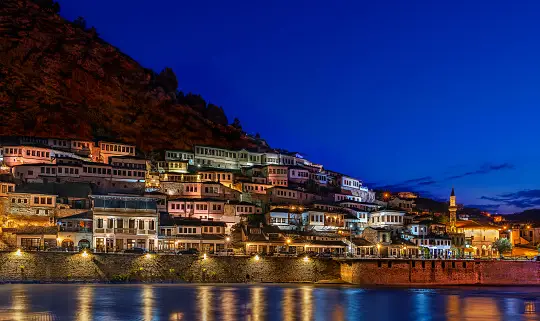
Place Speciality: Known as the “City of a Thousand Windows,” Berat is a UNESCO-listed town with a stunning collection of Ottoman architecture. Explore the Mangalem and Gorica quarters, visit the historic Berat Castle, and witness the unique architecture of the Onufri Museum.
Entrance Fee: Berat Castle: Approx. 100 ALL
How to Get There: From Butrint, travel northeast for about 4 hours (approx. 240 km) to reach Berat.
4. Theth: A Serene Alpine Escape
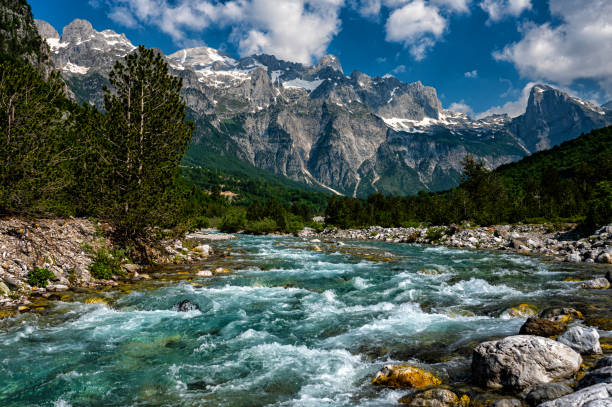
Place Speciality: Theth, nestled in the Albanian Alps, offers a serene escape surrounded by breathtaking mountain landscapes. Explore the Lock-in Tower, the Grunas Waterfall, and embark on hiking trails offering panoramic views of the Valbona Valley.
Entrance Fee: No specific entrance fees for natural attractions.
How to Get There: From Berat, travel north for approximately 6 hours (approx. 320 km) to reach Theth, accessing the village by a scenic mountain road.
5. Dhermi: Relaxation on the Albanian Riviera
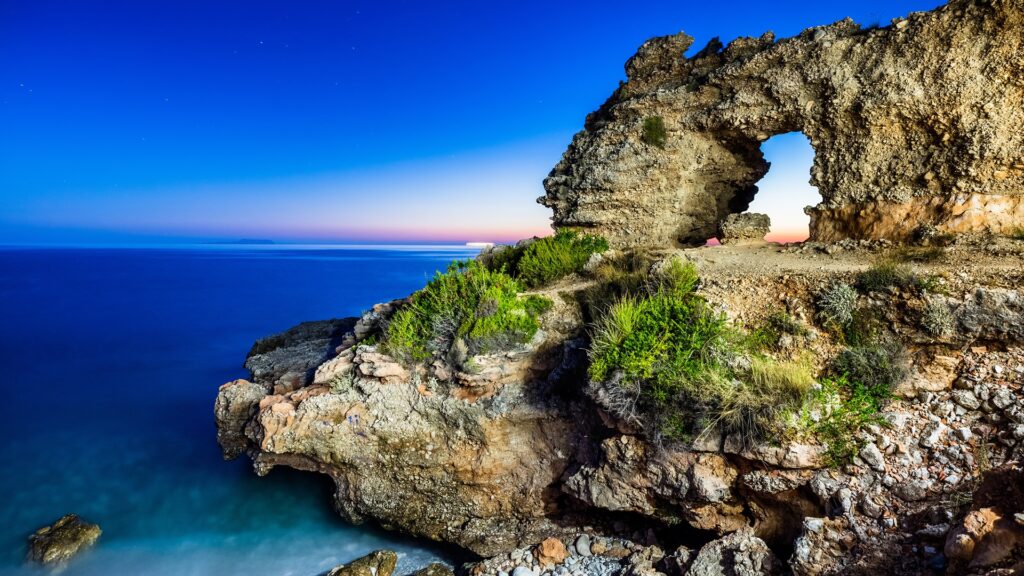
Place Speciality: Dhermi, situated on the Albanian Riviera, boasts pristine beaches and crystal-clear waters. Relax on Drymades Beach, visit the Monastery of Saint Mary, and enjoy the vibrant nightlife in the beachside town.
Entrance Fee: No specific entrance fees for public beaches.
How to Get There: From Theth, travel southwest for about 6 hours (approx. 220 km) to reach Dhermi, following the winding coastal roads.
Exploring Albania’s Hidden Treasures: 3 Unexplored Gems
1. Bogova Waterfall: A Hidden Oasis in the South
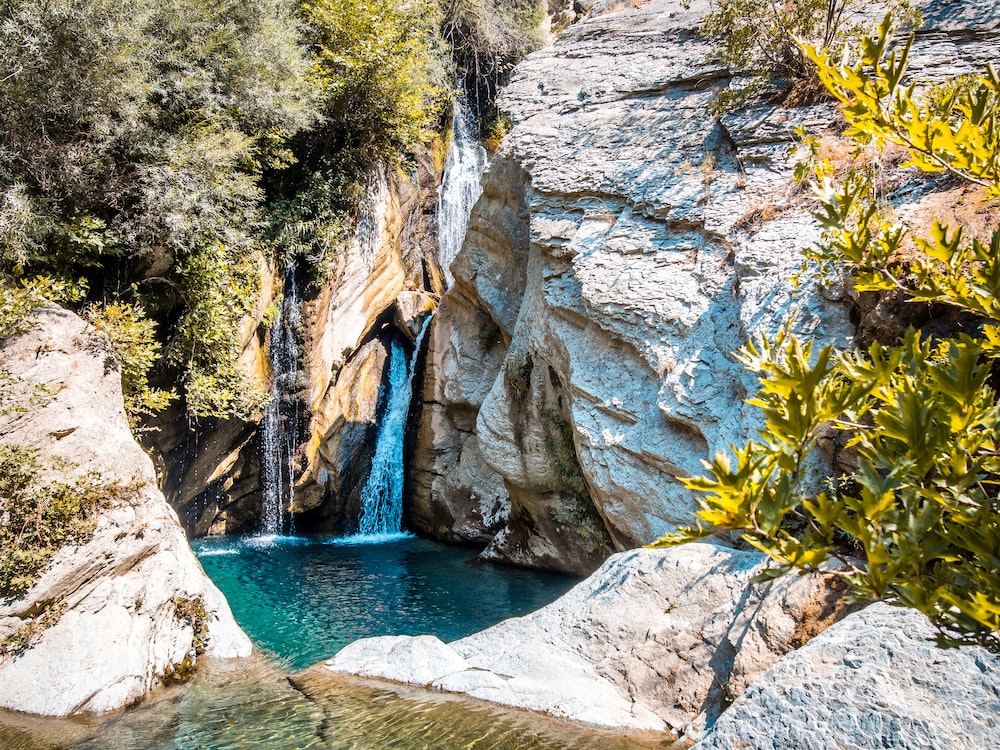
Place Speciality: Nestled in the southern region of Albania, Bogova Waterfall is a hidden gem known for its pristine natural beauty. Surrounded by lush greenery and cascading waters, this tranquil oasis offers a refreshing escape from the bustling world.
Travel Route and Transport Cost:
- Start your journey in Tirana and head south towards Gjirokastër.
- From Gjirokastër, take the road towards Tepelenë and then proceed to Bogova.
- Transportation options: Bus from Tirana to Gjirokastër ($10-$15), Shared taxi from Gjirokastër to Bogova ($10-$15).
Entrance Fee: No specific entrance fee. However, local guides may request a small fee for assistance.
2. Lepurë: A Picturesque Mountain Village
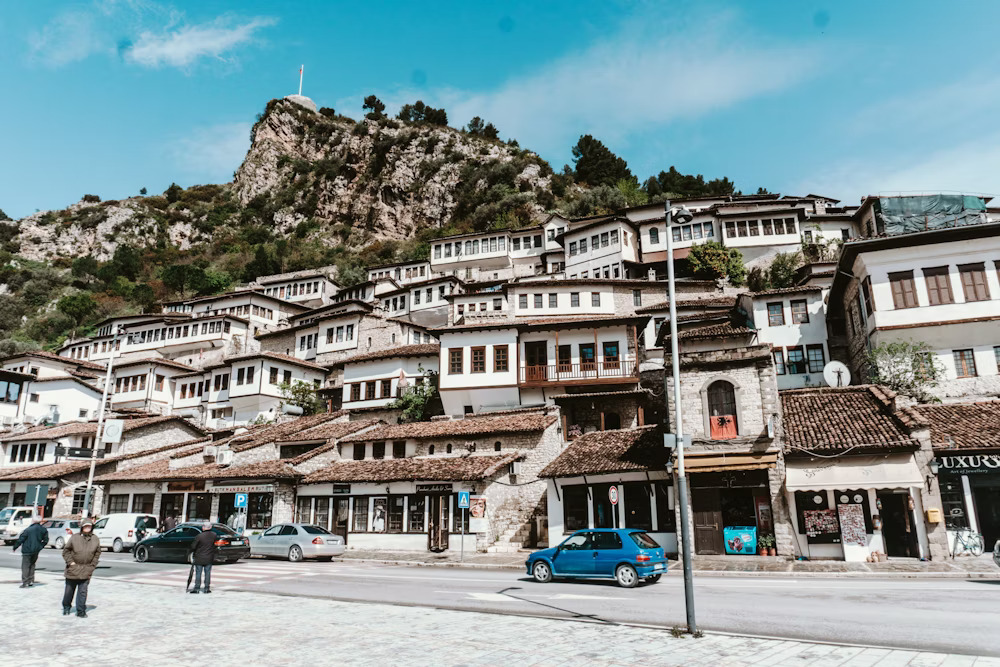
Place Speciality: Lepurë, situated in the Accursed Mountains (Bjeshkët e Nemuna), is a picturesque mountain village. Known for its traditional stone houses, alpine landscapes, and friendly locals, Lepurë provides an authentic experience of Albanian mountain life.
Travel Route and Transport Cost:
- Begin your journey in Shkodra and head northeast towards Theth.
- From Theth, take the scenic mountain road to Lepurë.
- Transportation options: Bus from Shkodra to Theth ($5-$10), Shared taxi from Theth to Lepurë ($10-$15).
Entrance Fee: No official entrance fee. Donations to the local community are appreciated.
3. Gjipe Beach: Secluded Coastal Beauty
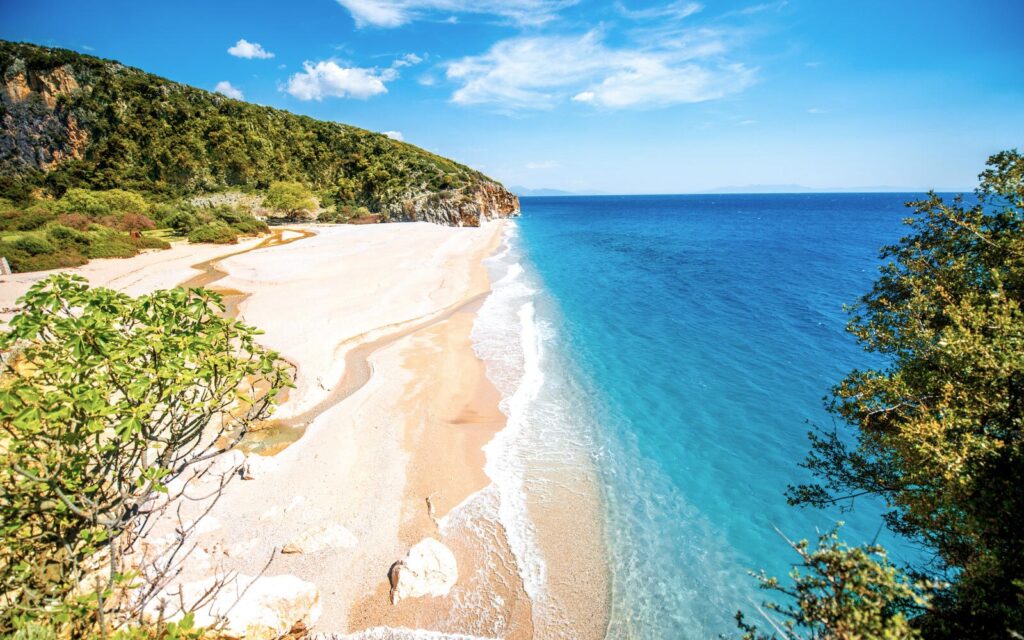
Place Speciality: Gjipe Beach, tucked away between towering cliffs on the Albanian Riviera, is a secluded haven with crystal-clear waters and pristine sand. The beach is surrounded by impressive limestone cliffs, creating a sense of isolation and tranquility.
Travel Route and Transport Cost:
- Start your journey in Vlorë and head south along the coastal road.
- From Dhermi, take a boat or hike through the canyon to reach Gjipe Beach.
- Transportation options: Bus from Vlorë to Dhermi ($10-$15), Boat or hiking transport from Dhermi to Gjipe Beach (prices may vary).
Entrance Fee: No official entrance fee. Accessible by boat or foot.
4. Rehova: A Mountain Village Time Capsule
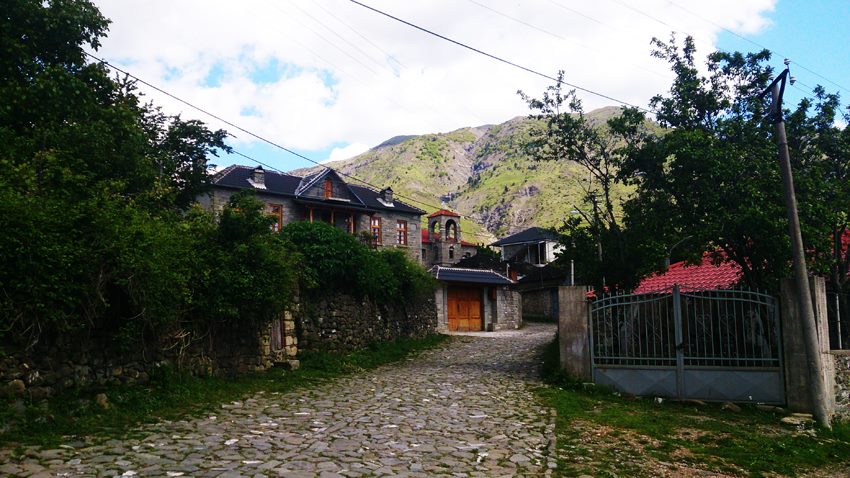
Place Speciality: Rehova, located in the Korçë region, is a mountain village frozen in time. With its cobblestone streets, traditional stone houses, and stunning mountain vistas, Rehova offers a glimpse into the authentic rural life of Albania.
Travel Route and Transport Cost:
- Begin your journey in Korçë and head southeast towards Leskovik.
- From Leskovik, follow the mountain road to reach Rehova.
- Transportation options: Bus from Korçë to Leskovik ($10-$15), Shared taxi from Leskovik to Rehova ($10-$15).
Entrance Fee: No official entrance fee. Contributions to local initiatives are welcomed.
5. Pellumbas Cave: Nature’s Underground Masterpiece
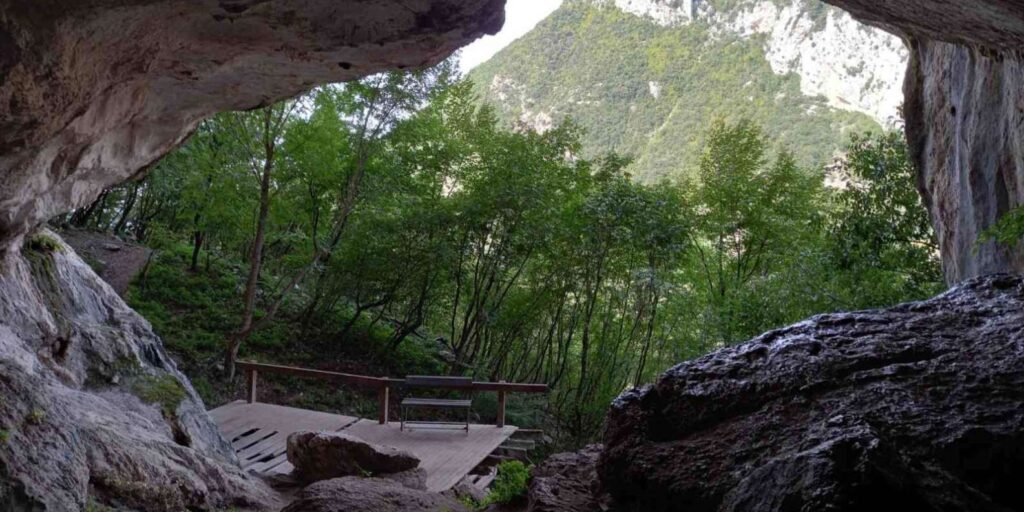
Place Speciality: Pellumbas Cave, situated near Tirana, is a natural wonder with stalactite and stalagmite formations. The cave’s chambers create a captivating underground landscape, offering an off-the-beaten-path adventure.
Travel Route and Transport Cost:
- Start your journey in Tirana and head southeast towards Pellumbas.
- Transportation options: Bus or shared taxi from Tirana to Pellumbas ($5-$10).
Entrance Fee: A small entrance fee may apply, usually around $3-$5, to support cave preservation efforts.
Currency & Travel Tips
Currency: The official currency of Albania is the Albanian lek (ALL). It’s advisable to exchange your currency to lek upon arrival at banks or currency exchange offices.
Travel Tips:
1. Budget Accommodations:
- Hostels: Hostels are a budget-friendly option in major cities like Tirana, Shkodra, and Berat. Examples include Tirana Backpacker Hostel and Wanderers Hostel.
- Guesthouses: In smaller towns and villages, consider staying in locally-run guesthouses for an authentic experience. These are often more affordable than hotels.
2. Public Transport:
- Buses: Buses are a common mode of transport between cities and towns. Prices vary but are generally affordable, ranging from $5 to $15 for longer distances.
- Furgons: Shared minivans, known as furgons, operate on shorter routes and can be a cost-effective and flexible means of travel. Prices range from $2 to $10 depending on distance.
3. Local SIM Provider:
- Providers: Vodafone, Telekom Albania (formerly known as AMC), and Albtelecom are major providers.
- Best Plan for Tourists: Consider purchasing a prepaid SIM card with a data plan. Vodafone and Telekom Albania offer tourist packages with data and talk time for around $10-$15.
4. Basic Words in Local Language:
- Hello: Tungjatjeta
- Thank you: Faleminderit
- Yes: Po
- No: Jo
- Goodbye: Mirupafshim
- Excuse me: Më falni
- Please: Ju lutem
- How much?: Sa kushton?
5. Local Cuisine:
- Byrek: A savory pastry filled with cheese, spinach, or meat.
- Tavë Kosi: Baked lamb or veal with yogurt and rice.
- Qofte: Grilled meatballs, often served with flatbread.
- Fergese: A dish made with peppers, tomatoes, and feta cheese.
- Raki: A traditional Albanian spirit, often offered as a sign of hospitality.
Additional Tips:
- Albania is generally safe for tourists, but it’s advisable to be cautious in crowded areas and to safeguard your belongings.
- Respect local customs and traditions, especially in rural areas.
- Albania has a Mediterranean climate, so pack accordingly with sunscreen and comfortable clothing.
- Bargaining is not a common practice in Albania, except in some markets.
More details to know about
1. Best Festivals to Attend:
- Kala Festival (Dhermi): An annual music festival held on the stunning Albanian Riviera, Kala Festival brings together international and local artists for a celebration of music, arts, and beach culture.
- Gjirokastër National Folk Festival: This cultural extravaganza in the UNESCO-listed city of Gjirokastër showcases traditional music, dance, and crafts, offering visitors a vibrant immersion into Albanian folklore.
- Tirana International Film Festival (TIFF): Film enthusiasts can partake in TIFF, an annual event in the capital city, showcasing a diverse selection of international and Albanian films.
- Apollonia Festival (Fier): Celebrated in the ancient city of Apollonia, this festival combines music, theater, and art, transforming the archaeological site into a dynamic cultural hub.
2. Specialties:
- Albanian Riviera: With its pristine beaches, crystal-clear waters, and vibrant coastal towns like Dhermi and Himara, the Albanian Riviera is a specialty that beckons sun-seekers and adventure enthusiasts alike.
- Butrint Archaeological Site: Recognized as a UNESCO World Heritage site, Butrint boasts ancient ruins from various civilizations, including Greek, Roman, Byzantine, and Venetian, making it a historical and archaeological treasure.
- Traditional Albanian Cuisine: From savory byrek (pastry) to flavorful tavë kosi (baked lamb with yogurt), exploring the diverse and delicious Albanian cuisine is a culinary specialty not to be missed.
3. People:
- Hospitality: Albanians are renowned for their warm hospitality. Visitors often find themselves welcomed into homes for a cup of Turkish coffee or a traditional meal, exemplifying the genuine friendliness of the people.
- Youthful Spirit: With a significant portion of the population being young, Albania exudes a vibrant and energetic atmosphere. Young entrepreneurs, artists, and activists contribute to the dynamic cultural scene.
- Cultural Diversity: The Albanian people are a mosaic of cultural influences, evident in their language, traditions, and the coexistence of various religious communities. This diversity adds depth and richness to the nation’s identity.
4. Travel Safety:
- Low Crime Rates: Albania boasts relatively low crime rates, making it a safe destination for tourists. However, standard safety precautions, such as safeguarding belongings, should be observed.
- Road Safety: While road conditions have improved, travelers should exercise caution, especially in mountainous areas. Be mindful of local driving habits and consider hiring a local driver for more challenging routes.
- Health Precautions: Ensure you have travel insurance that covers medical emergencies. Tap water is generally safe in urban areas, but bottled water is recommended in more remote regions.
- Local Customs: Respect local customs and traditions, particularly in rural areas. Dress modestly when visiting religious sites, and ask for permission before taking photographs, especially of locals.
Wanderer’s Word
As we wrap up our exploration of Albania’s captivating facets, it becomes evident that this Balkan gem offers a harmonious symphony of experiences. The country’s festivals, from the lively beats of Kala Festival to the cultural resonance of the Gjirokastër National Folk Festival, provide a glimpse into the vibrant spirit of the Albanian people. So, as you embark on your Albanian adventure, be prepared to be enchanted by the festivals, tantalized by the specialties, embraced by the people, and assured by the commitment to your safety. Albania awaits, ready to reveal its treasures to those willing to explore beyond the ordinary and embrace the extraordinary. Happy travels!
"Udhëtimi është unësia që të bën të pasur" "Travel is the richness that makes you wealthy"



